|
21 Jesus and his followers went into Capernaum. Immediately on the Sabbath Jesus entered the synagogue and started teaching. 22 The people were amazed by his teaching, for he was teaching them with authority, not like the legal experts. 23 Suddenly, there in the synagogue, a person with an evil spirit screamed, 24 “What have you to do with us, Jesus of Nazareth? Have you come to destroy us? I know who you are. You are the holy one from God.” 25 “Silence!” Jesus said, speaking harshly to the demon. “Come out of him!”26 The unclean spirit shook him and screamed, then it came out. 27 Everyone was shaken and questioned among themselves, “What’s this? A new teaching with authority! He even commands unclean spirits and they obey him!” 28 Right away the news about him spread throughout the entire region of Galilee. -Mark 1:21-28 CEB Imagine with me. Imagine Jesus is a magnet. If you know anything about magnets you know they have two poles. Opposite poles attract. Let’s say ‘good’ is one pole and ‘bad’ is the opposite pole. Jesus would constantly be one pole, the good pole. Therefore, it would make sense the opposite pole would be drawn to him. Enter the person with an unclean spirit. There are many a voice that would consider him the polar opposite of Jesus. After all, he was possessed with a demon. In the world of demons and angels, our focus can seem to be pointedly on the spiritual side of good versus evil. I think we could set ourselves up for something very dangerous if we were to put this man opposite Jesus. For Jesus, the man with the unclean spirit was the need, not the villain. The man needed help. There are faith traditions who have a nasty habit of taking those who need us, and turning them into the bad guy/gal. We create safe zones around our congregations, and somehow we don’t realize it cuts out the least of these. We can figure out who the villain was, by looking at the need. If Jesus fixed this man in need, the person or group who didn’t (at least according to Mark) would be the polar opposite. Have you figured it out yet? The polar opposite of Jesus were the Chief Priests. They did not or could not help the man. Jesus could. Jesus was able to teach in a way the people understood, while perhaps the Chief Priests missed the mark. Jesus helping the man brought the polar opposites just a little closer together. For those of us who understand the story of Jesus, crucifixion happens when the poles connect. So what is the point? We need to be careful who we are making the enemy, because we could be pushing away the need instead of dealing with the problem. We could be making enemies of those who should be our allies. Know your enemy, but also know the need.
The Lord’s word came to Jonah a second time: “Get up and go to Nineveh, that great city, and declare against it the proclamation that I am commanding you.” And Jonah got up and went to Nineveh, according to the Lord’s word. (Now Nineveh was indeed an enormous city, a three days’ walk across.) Jonah started into the city, walking one day, and he cried out, “Just forty days more and Nineveh will be overthrown!” And the people of Nineveh believed God. They proclaimed a fast and put on mourning clothes, from the greatest of them to the least significant. God saw what they were doing—that they had ceased their evil behavior. So God stopped planning to destroy them, and he didn’t do it. Jonah 3:1-5;10 Jonah is my favorite Prophet. It is partly because the book of Jonah is only 4 chapters long so it's an extremely quick read. I have always been a fan of brevity. It's mostly because Jonah sticks out to me in ways the other prophets do not:
 In the Christian church in America there are three growing groups. First, there are dying churches. It seems more and more churches are on the decline. Of those churches on the decline, there are a growing number that have been damaged in some way. I'm not going to spend my time explaining the damage, just to say, the damage happens in all kinds of ways, and may or may not be the churches fault. If not dealt with, the church can do one or both of these things. It can create a second growing group, broken Christians. This is a growing group that is really difficult to see. We have spent the past 30-50 years insulating ourselves inside the building, we don't understand what we look like outside the building. Broken Christians do. Not only do they feel isolated and unwelcome by the church, but their time outside of the building necessarily changes them. They begin to see the church differently. They are given secular eyes, and it makes it impossible to ever return to what they once knew. This is one of those situations where only those on the outside know what I am talking about. The third group are broken ministers. You would think seminaries would prepare ministers to enter these damaged institutions like a caring doctor seeing a patient. This is not the case. Seminaries are way behind educating future clergy for the world they will enter. While we might talk about family systems, and passive aggression, we are completely unprepared for the war-zone we are entering upon ordination. When those broken systems end up breaking us, some of us go on to knowingly or unknowingly break other churches or congregants. Some of us lick our wounds and get out of the game for good. Then there are those like me. 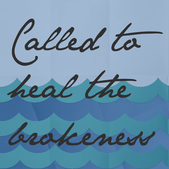 The third group of ministers seek healing and then are called to heal the brokenness. Sometimes the minister has enough sense to get out of the game for a bit to heal. I am a bit more impulsive and wanted to get right back in. Therefore, I found myself in my own metaphorical fish, forced to heal before I would be spit out and given my call. It was not fun, but it was needed. Many of us are called back to the church. With our eyes opened we re-enter the institution and begin healing the broken systems. Then there is me. This was not the direction I thought all this would go. The internet is the proverbial Nineveh. There are many cruel voices out there. It's like we forget there are actual people reading our words. I see with those broken congregants eyes. I can't go back. I'm here. I'm here because I've been through it, and I'm healing. I am also forever changed. The book of Jonah ends rather abruptly. Jonah complains how God spared the Ninevites, and God rebukes Jonah by killing a bush. (Yeah, I kinda simplified things.) Then it just ends. What happens to Jonah? Does he go back to his initial home? I would think it would be very difficult for him to go home. Can you imagine the conversation with me: "So Jonah, where have you been?" "Nineveh. I told them to turn from their ways or face God's wrath." "Did God smite Nineveh?!" "Nope. They are in God's good grace now." Considering how poorly Nineveh had treated the people of Israel, I couldn't imagine the people would be very pleased to know what Jonah was a part of. Would he even be welcomed back home? I'd like to think, after all Jonah had been through, he was forever changed. Instead of heading back to Israel, he set up shop in Nineveh. Together, they began to understand what it meant to know God in Nineveh. Together, they grew in faith.
7 Moses took the tent and pitched it outside the camp, far away from the camp. He called it the meeting tent. Everyone who wanted advice from the Lord would go out to the meeting tent outside the camp. 8 Whenever Moses went out to the tent, all the people would rise and stand at the entrance to their tents and watch Moses until he had gone into the tent. 9 When Moses entered the tent, the column of cloud would come down and stand at the tent’s entrance while the Lord talked with Moses. 10 When all the people saw the column of cloud standing at the tent’s entrance, they would all rise and then bow down at the entrances to their tents. We are not comfortable with empty holes, or missing pieces. I know I'm not. When I was a kid I had this puzzle that was always missing a piece. I would put it together time and time again, and feel bummed knowing I couldn't complete it. Eventually, I got out my art supplies and re-created the missing piece. It never looked right, but I could definitely finish my puzzle. In other ways, we know we need to fill those holes because they can be dangerous. We want to guard others against empty space, because we don't want a wandering person to fall into them. (We don't have Lassie to come and save Timmy from that well anymore. We have to be safe.) In other places, a missing pieces just looks lazy. Sometimes we can see how a group or person just didn't care about the project, so skipped steps to get to the final product. We can all name those projects or people, where it just seems they didn't really try. A piece of their project is either missing something obvious, or something we just can't name. Then there is Fig Tree Christian. About four months ago I was trained in Children's Worship and Wonder. (This is the Disciples of Christ version of Godly Play. If you don't want to click the links, it takes the liturgical calendar and finds holy and creative ways to teach the bible to kids in their own worship setting. The above video is our scripture for today. I highly recommend you take 8 minutes and watch it.) Part of the training was seeing the stories in action. As students, we became the figurative kids, while the teacher became the storyteller. One of those stories that captivated me was a desert box story: the Tabernacle. Using the Priestly account, the storyteller slowly built the tabernacle where the Ark of the Covenant resided while the Israelites were in the wilderness. Now, I have a degree in divinity. I've worked in churches since 2000. I've volunteered my time to Christian camps and churches since I was a kid. I've lived and breathed church. Four months ago my eyes were filled with wonder. I could see the story, and process what it was. Every time I had learned about the Ark and the Tabernacle, it had always been as the finished product, covered in Kragle. (Krazy Glue, for those who are not in the know.) When all the pieces are in order, and everything has a purpose, supergluing tradition can be a good thing. It has worked really well for the Eastern Orthodox and Catholic churches. This is probably why these traditions have grown while Protestant traditions have declined. Whether I believe the reasons or not, everything they do has a purpose. If one were to ask, "Why are you doing that?", they would have a real and honest answer. For every tradition, there was a time when it was pieced together. Even the tabernacle, where the ark was kept, was put together in a process. It wasn't thrown together and superglued. It took time. This is where I want to get to the point. When Fig Tree first started I was given a few "How to build a new church" kits. Each of these kits came with pieces to a puzzle. If I had put the pieces together it would created a complete picture. With each of these kits I had a problem: I didn't know what the pieces meant anymore. If I, someone who had spent my entire life congregating, volunteering and working in the church, didn't know what the pieces meant, why would I use those pieces? I've had people ask me, "Oh! You are the minister of an online church? Do you have [this piece of the puzzle]?" They are physically uncomfortable when I tell them there isn't a weekly worship service, as we understand worship. They don't know what to do when there isn't a choir or praise team. They see those holes, and step away. Meanwhile, I see those pieces and can't put them down on the puzzle. It's not saying there won't eventually be pieces there. It is saying, I'm intentionally leaving them blank because I haven't found what fits there yet. We shouldn't be gung ho to fill in the blanks just because there are blanks. Just filling in the blanks leads to traditions we don't understand, and don't mean anything. New plants should be intentional about allowing space to be space. Do things when they make sense and have a purpose, not because they need to be filled. Look at it with the eyes of a child (with worship and wonder) and you might see the wondrous ways God has been acting in that empty space, preparing something to fill it up.
-Matt Have you ever tried to build something without the proper tools? Perhaps you wanted to hang a picture on the wall, but you had no nails. I used to go camping when I was a teenager, and it was a pretty normal occurrence for something to get forgotten by someone. So we had no “proper” tool to do what we needed to do. We had to find some way of doing what needed to be done without the right tools. So, stones were used as hammers, a screwdriver was used as a fork and, one time, we even had to try and fix someone's engine with a pocketknife. It worked well enough to get the car to the next gas station too. These memories are what pop into my mind when I read texts like Isaiah 40.3-8: “A voice cries out: 'In the wilderness prepare the way of the Lord, make straight in the desert a highway for our God. Every valley shall be lifted up, and every mountain and hill be made low; the uneven ground shall become level, and the rough places a plain. Then the glory of the Lord shall be revealed, and all people shall see it together, for the mouth of the Lord has spoken.' A voice says, 'Cry out!' And I said, 'What shall I cry? All people are grass, their constancy is like the flower of the field. The grass withers, the flower fades, when the breath of the Lord blows upon it; surely the people are grass. The grass withers, the flower fades; but the word of our God shall stand forever.'” We often hear the phrase „”prepare the way of the Lord,” but it seems to me like we forget the full context of that verse: “IN THE WILDERNESS prepare the way of the Lord, make straight IN THE DESERT a highway for our God.” The wilderness and the desert are integral parts of what this voice is crying out. And this is why it reminds me of camping when I was younger. But have any of you ever tried to build a highway in the desert? I can't imagine it must be a lot of fun. I mean, it's a DESERT. Is it a sandy desert? Where do you lay the firm foundation for the road? What do you do when the wind covers the road with sand? Is it a rocky desert? Well, you have a foundation now, but what do you do about the rocks? Do you go around them? Build over them? Or, perhaps you blast through them? And temperatures in the summer can rise well above 100 degrees. In Utah the temperatures actually, on occasion, caused the pavement itself to buckle with the heat. Then there's little or no shade and don't forget all the hot machinery you're working with. And, if all that is starting to warm you up on a winter's day, then here's another bit of trivia for you: Many people don't know that Antarctica is considered a desert as well. Imagine trying to build a highway there. But the voice crying out in Isaiah doesn't stop with just preparing a road. Valleys get lifted up, mountains are made low, uneven ground is made level and rough places are made plain. This is a total re-ordering of landscape. I grew up not far from the world's largest open-pit mine, Kennecott Copper Mine. This mine is so large that it is visible from outer space. The mine was first opened in 1906. In 108 years, they have managed to dig a hole a little less than one kilometer deep and four kilometers wide. This mine has radically re-ordered the landscape around it. To the point where the mining company has had to spend over $400 million to clean up the affected areas. But basically, with all of this work during a little over one hundred years, miners have been able to remove ONE rather small mountain. All of a sudden, repairing a car engine with a pocketknife seems easy.  Perhaps it is no wonder then that Isaiah's next words respond to how overwhelming this vision is: "What shall I cry? All people are grass... surely the people are grass. The grass withers, the flower fades...“ When we stand before the task that God calls us to in Isaiah, making a road in the desert and levelling the land, we can find ourselves feeling completely inadequate. Like grass. If we are “in the desert,” then how can we possibly even begin to prepare anything for the coming of God? Perhaps some of us are in the deserts of pain, loss, hopelessness or even depression. I think now of Elijah wandering off into the desert with nothing to eat or drink, wanting to just die. What shall we do when we feel as Elijah felt, as dying grass in Isaiah's desert? How can we prepare ANYTHING for the Lord? The Lutheran pastor Wolfgang Bittner illustrates how deeply this verse connects with his words that: “Theology without a deeply affected life simply does not exist in a biblical perspective.” That is, our faith goes beyond merely thinking the right things. Our faith deeply affects our entire lives. 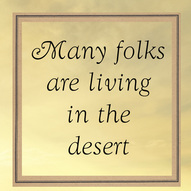 Many folks are living in deserts. Either stranded out there by people they thought of as friends, or chased out, or just wandered out in despair like Elijah, or perhaps even those (like Jesus) who have been led by the Spirit into the desert for a time. How can we act as the Voice of the Lord in Isaiah asks us to? How can we prepare a way? I think we first have to think about or remember what life in a wilderness is like, especially thousands of years ago. You didn't just wake up to a pretty landscape, then turn up the air-conditioning and turn on the kitchen tap for a glass of water. The wilderness was a place where such luxuries did not and could not exist. A place of hardship and trial. We can see this from the forty years the Hebrews wandered in the desert, as well as from Jesus' temptation when he was in the desert. We can also see this from studying desert biology where plants and animals have evolved without plenty of resources. Spines and spikes are normal for many plants. There's a basic survival need to maximize the potential of every ounce of energy and water. To slightly change the title of a famous Heinlein book: The Desert is a Harsh Mistress. But that's exactly the POINT. Most folks like to be comfortable. We surround ourselves with veritable luxury—heating, air-conditioning, electricity, wlan, smartphones, etc. But the wilderness is a place that is decidedly un-luxurious. Think along the lines of a real life post-apocalyptic scenario. Mad Max, Waterworld, Salt Lake City, that kind of stuff. But in the Bible, the wilderness is a place where Israel had to come to rely totally and completely upon God. In other words, the desert was a place to deeply experience God's grace and salvation. Because that was ALL that could be relied upon. In that sense, the desert can be our friend. It will never really get comfortable. But it can be a place that reminds us of our need for fellowship with each other, and fellowship with God. It can be a place that reminds us of our need for God to come to US. And it can, hopefully, cause us to re-think how we interact with each other. Because, while competition may work on certain biological scales, the best way to survive a desert is through cooperation. Cooperation is something that can be the difference between life and death when it comes to camping or hiking trips into the wilderness. Almost every year there is a story of some hiker who has gone missing and no one knows where s/he has gone because the hiker never bothered to tell anyone where they were going or for how long. The chances of finding such a person are, sadly, slim. But tell someone what you're doing, where you're going, and you have far better chances of survival in case something happens. Cooperate with another person just a little bit, and increase your chances manifold. 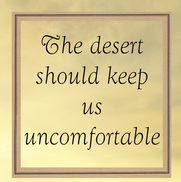 The desert is uncomfortable and it should keep us uncomfortable. Because, as one of my favorite Frank Herbert quotes goes: “Religion must remain an outlet for people who say to themselves, 'I am not the kind of person I want to be.' It must never sink into an assemblage of the self-satisfied.” Of course, no one likes being uncomfortable. Myself included. So I think it's a constant process of consciously allowing yourself to be open to be made uncomfortable. Of trying to appreciate the times you are in the desert, for whatever reason. (Note: Saying that we should allow God to make us uncomfortable is not the same as saying that all uncomfortableness is from God.) So, I guess it's rather paradoxical that I love the desert so much. It doesn't make much sense. But, in the words of the extreme marathon runner Mauro Prosperi who was lost in the Sahara for ten days: “I can't live without the desert. Desert fever does exist, and it's a disease that I've absolutely caught. I'm drawn back to the desert every year to greet it, to experience it.” Matt grew up in Utah, but now calls Europe home. Matt has a master's in theology. Matt is Pansexual and Genderfluid. Matt is fascinated by Augustine, likes Britney Spears, Mastodon, and finds theology everywhere.
I believe in God,the Father almighty,Creator of heaven and earth, and in Jesus Christ, his only Son, our Lord, who was conceived by the Holy Spirit,born of the Virgin Mary,suffered under Pontius Pilate,was crucified, died and was buried; he descended into hell;on the third day he rose again from the dead;he ascended into heaven,and is seated at the right hand of God the Father almighty; from there he will come to judge the living and the dead. I believe in the Holy Spirit, the holy catholic Church,the communion of saints, the forgiveness of sins,the resurrection of the body,and life everlasting. Amen. For members of the Christian Church (Disciples of Christ), the closest we probably get to being credal is reciting the Lord's Prayer. Anyone who is credal knows, the Lord's Prayer is not a creed. It begs the question: What can I, a minister in the Christian Church, have to say about the Apostle's Creed? Let me begin by saying, I don't plan to dismiss or patronize the creeds. I believe they have served as a valuable tool in the progression of the Christian faith. Even those who claim to not have creeds have been influenced by the creed constructed during the first council of Constantinople, which is the earlier version of the Apostle's Creed. The Problem:When the early church Fathers got together to discuss what was important to the Christian faith it began: "We believe in one God." Back then, this statement was directly against those who believed in more than one god, a polytheistic belief. Do you realize, in today's culture, how many leaps of faith must come to many before we even get to a 'one God' dialogue? The creeds are great, and help us understand our faith. In today's culture, it's no longer the starting point. Where We Need to Begin Today:We believe in something beyond our realm of reality. You want to talk to someone about the wonderful relationship you have in your Christian faith. That is great! It's wonderful! It can no longer start with God. This isn't saying God isn't the most important part of the equation. God is. This is saying that Christianity is now a different language than the culture it is part of. Therefore, we must start as basic as possible. How simple? We believe existence, our perceptible world, is bigger than we realize. At this beginning we can discuss atoms, light waves, and things most high schoolers learn about in their science class. Maybe, just maybe, this universe still has mystery and expense to it. Eternity exists within an atom. There will always be space to see it closer, there will always be room to move away from it. Maybe what we are able to perceive is actually there and exists. We can then follow it up with a discussion of our arrogance. Did you know, as recent as the 1970's scientists believed we were in the middle of a global cooling? It wasn't a collective theory, but it gained traction because of the slight cooling that happened in the 70's. There was even discussion of tarring the ice caps to heat things up. There was a time we believed the earth was the center of the universe. There was a time when crack cocaine was considered medicine and bleeding someone out was an appropriate method to help someone with a headache. Every generation we get so caught up in what we know, our arrogance gets the better of us. We think our way is the right way, even though so many generations before us thought the same thing and they were so wrong. For a Christian, it is our humility that says there is something more. Really, it is in our humility where we really start. We believe there is something beyond our understanding that we are mostly blind, mute, and deaf to. It's a reality that cannot be measured, and is greater than ourselves. In our humility we say, "We believe."
|
Categories
All
Archives
October 2023
|



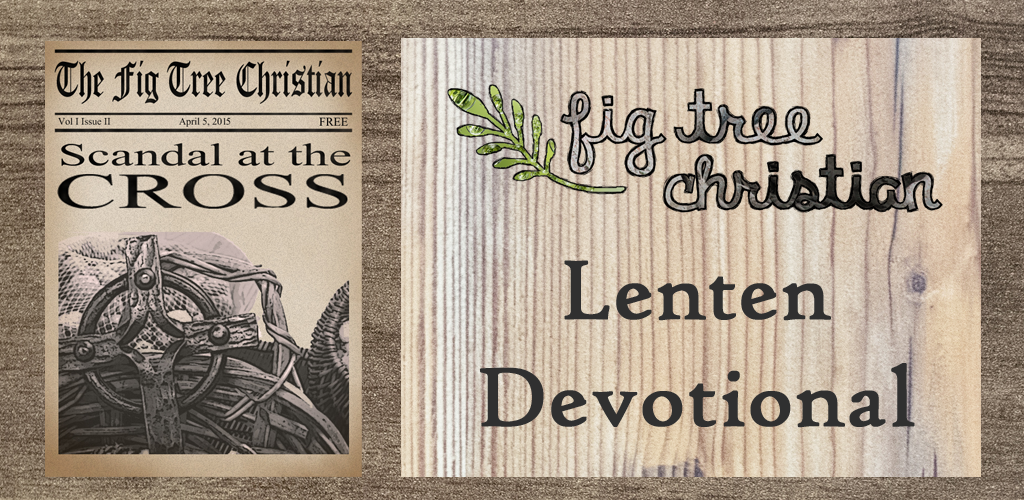

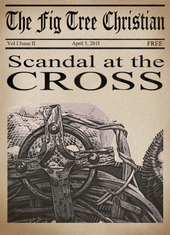
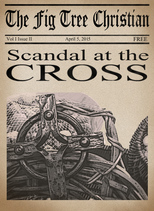
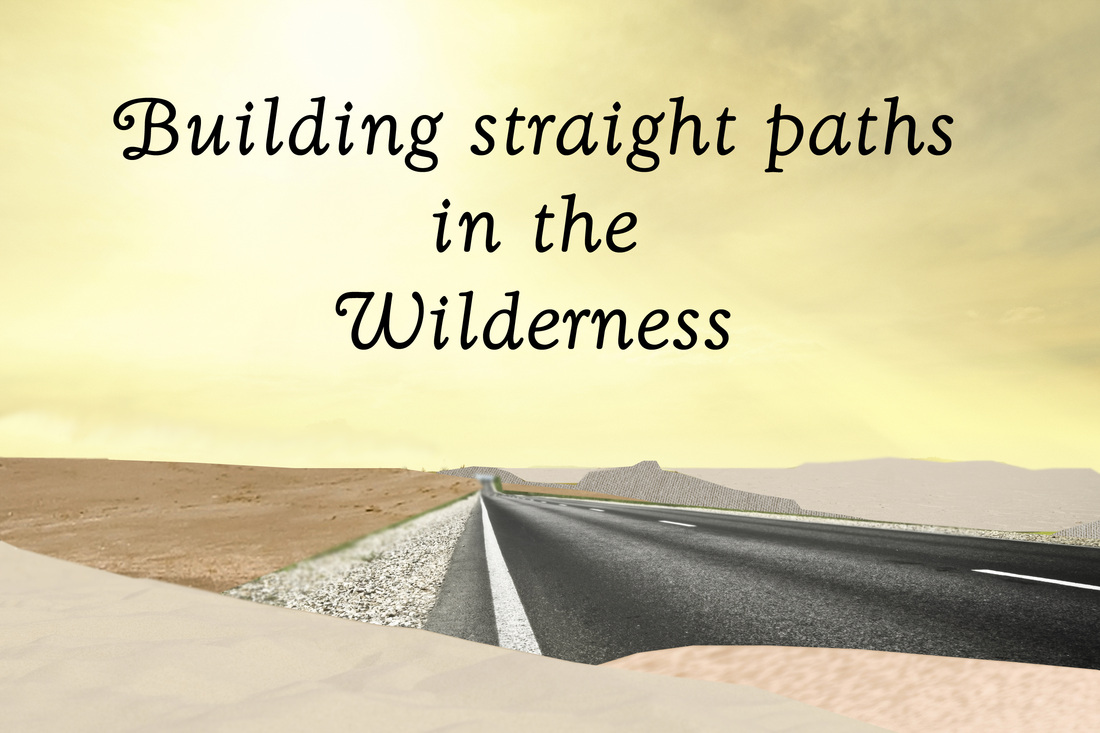
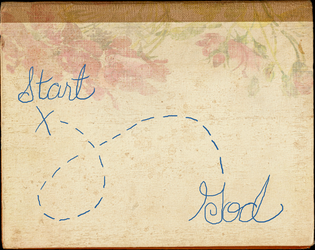

 RSS Feed
RSS Feed